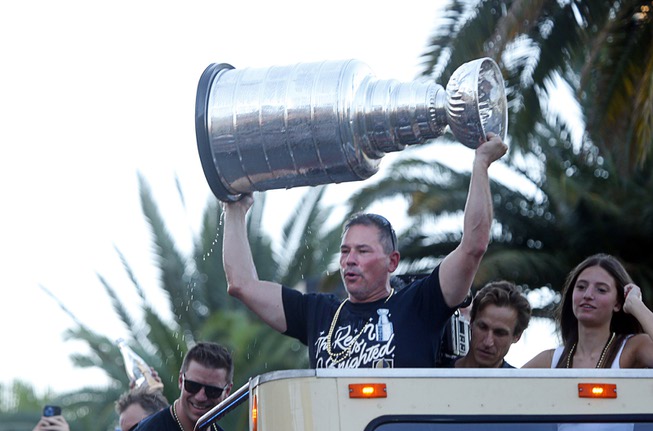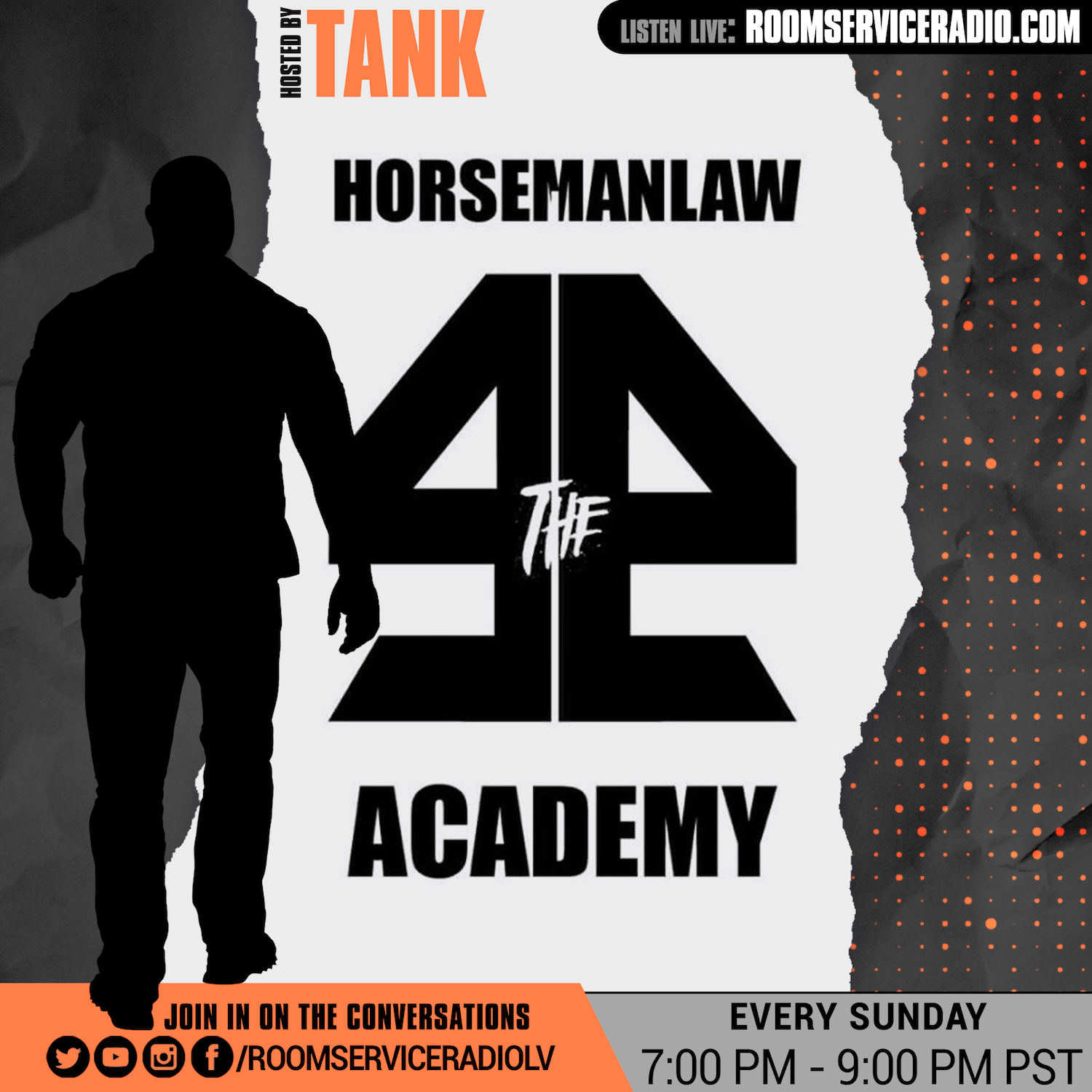
Vegas Golden Knights head coach Bruce Cassidy holds up the Stanley Cup during a Vegas Golden Knights victory parade on the Las Vegas Strip Saturday, June 17, 2023. The Golden Knights defeated the Florida Panthers at T-Mobile Arena Tuesday to win the Stanley Cup Final.
Tuesday, June 20, 2023 | 2 a.m.
Bruce Cassidy learned an important lesson in coaching the Golden Knights to the Stanley Cup: A team doesn’t have to be perfect to win the championship.
Cassidy frequently labeled his team as “imperfect” throughout the season, and there was truth in that sentiment.
The Golden Knights were a middle-of-the-pack special teams unit all season. They had to get by with five goaltenders. Not one player had a dominant statistical season.
But once the playoffs started the Golden Knights went from an imperfect group to having one of the more dominant playoff runs in recent memory.
So, what changed?
“Just the togetherness of the team, the timeliness of our responses,” Cassidy said.
The Golden Knights went 16-6 in the postseason, and adversity was rare.
They outscored the Winnipeg Jets 18-7 in four wins following their 5-1 loss in Game 1 of the first round.
Winning Games 5 and 6 in the second round against the Edmonton Oilers — after alternating wins in the first four — was a major hurdle in Cassidy’s eyes to close out a “physical, nasty” series against a team most thought would represent the West in the Cup Final.
“You’re sitting there halfway feeling like, ‘we can get this done. We’re as good as anybody,’” Cassidy said.
Then came the Western Conference Final against the Dallas Stars. The Golden Knights let two opportunities to clinch slip after taking a 3-0 series lead, losing Games 4 and 5 and being forced to return to Dallas to finish the series.
Golden Knights captain Mark Stone said after the 6-0 win in Game 6 that had they won Game 4 and completed the sweep, they would’ve been “fooling ourselves a little bit into thinking how great of hockey we were playing.”
Cassidy called that Game 6 the measuring stick in how Vegas would respond, which it did by playing the best game of its season in close-out fashion to set up the Cup Final against the surprising Florida Panthers.
“Once we were there, I truly believe we weren’t going to be denied,” Cassidy said. “That’s no disrespect to Florida, but you could sense it with the guys.”
The momentum from that dominant Game 6 carried over, and then some.
The Golden Knights outscored the Panthers 26-12 in the five-game series, including 21-7 in three games at home. Those numbers ballooned thanks to the 9-3 win in Game 5 on Tuesday, the most goals ever scored in a Cup-clinching game.
But it wasn’t just the close-out game against Florida where the Golden Knights dominated. When it was time for them to end the series, they did in emphatic fashion in each round. The Golden Knights outscored Winnipeg (4-1), Edmonton (5-2), Dallas (6-0) and Florida (9-3) 24-6 in the close-out games.
Each game had a period of dominance; the second period against Winnipeg (3-0); the second period against Edmonton (3-0, all goals from Jonathan Marchessault); the first period against Dallas (3-0); and the second period against Florida (4-1).
“When it was time, all four clinching games, I thought we dominated,” Cassidy said. “That’s a sign of a team that’s ready to do it.”
One of Cassidy’s strengths is finding the right formula on the power play and penalty kill. He coached top-10 special teams’ units for the majority of his six-year run with the Boston Bruins before landing in Vegas just over a year ago.
The Golden Knights’ power play (20.3%) and penalty kill (77.4%) were slight improvements from the year prior, but still in the bottom third this regular season.
Following the Edmonton series, Vegas’ special teams were approaching horrid status. The Golden Knights converted 17.5% (7 of 40) of their power plays, and killed only 21 of 35 penalties (40%) through the first two rounds, but still found themselves in the Western Conference Final.
The tide changed starting with the Dallas series. The Golden Knights scored a power-play goal in six of their final 11 games (9 for 33, 27.2%) and the penalty kill allowed just three goals (22 of 25) in two rounds.
That included the shorthanded unit killing all 14 Florida power plays in the Cup Final, highlighted by Stone’s first of three goals in the Game 5 clincher.
“Special teams, you always think you have to be at the top to win,” Cassidy said. “We debunked that a little bit to win. We didn’t give up a power-play goal in the final, but it took us a little bit to get there.”
The Golden Knights also got near-perfect goaltending from Adin Hill along the way, especially in his final nine starts, with six wins including two shutouts. Hill, who is set to be an unrestricted free agent on July 1, allowed 2.09 goals and posted a .934 save percentage in the run that started with Game 3 in Dallas.
All the inconsistencies that cast any doubt on the Golden Knights winning the Stanley Cup went away the deeper the run they made. The only consistent trait that carried from the regular season was their 5-on-5 play; the Golden Knights had a plus-33 goal differential at even strength during the postseason.
Despite all those imperfections, the Golden Knights still finished the regular season with a franchise record 111 points. They went into the playoffs as the top seed in the Western Conference and dominated their way to the Stanley Cup.
Consider it a lesson well-learned for Cassidy.
“Before, you’re always thinking, as a coach, you have to be (up) here all the time. You don’t,” Cassidy said. “There’s a lot of highs and lows. You’ve just got to find your game at the right time, and we were able to do that.”
Danny Webster can be reached at 702-259-8814 or [email protected]. Follow Danny on Twitter at twitter.com/DannyWebster21.












